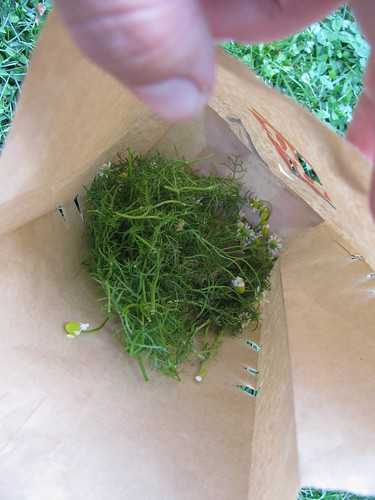
Here’s how the big leafed herbs like basil, oregano and mint:
1) Pick whole stalk (or buy from the farmer’s market)
2) Wash and pat dry
3) Hang by clothes pins on the clothes line in bright sun. If you don’t have a clothesline, look for a sunny spot where air circulates well.
4) Bring in at night (to avoid dew re-wetting them)
5) Hang one more day

6) When herbs are completely dry (they will be crispy textured), bring inside
7) Use fingers to rub off the leaves
8 ) Package in labeled glass jars or ziploc bags

Homegrown mint tea awaits us in winter
For more delicate herbs (thyme, chamomile), I modify the above steps by hanging them inside a cut up paper bag on the clothes line.

Notice the tiny cut holes in the sides
The bag catches any little pieces that might dry and fall off. This is particularly important for chamomile, as the best tea is made from the flowers.



0 comments: